What is ulcerative colitis?
Ulcerative colitis (UC) is an inflammatory bowel disease (IBD). IBD comprises a group of diseases that affect the gastrointestinal tract. Ulcerative colitis occurs when the lining of your large intestine (also called the colon), rectum, or both become inflamed.
This inflammation produces tiny sores called ulcers on the lining of your colon. It usually begins in the rectum and spreads upward. It can involve your entire colon. The inflammation causes your bowel to move its contents rapidly and empty frequently. As cells on the surface of the lining of your bowel die, ulcers form. The ulcers may cause bleeding and discharge of mucus and pus.
While this disease affects people of all ages, most people are diagnosed between the ages of 15 and 35. After age 50, another small increase in diagnosis for this disease is seen, usually in men.
Types of Ulcerative Colitis
Ulcerative Proctitis
In ulcerative proctitis, bowel inflammation is limited to the rectum. This condition typically affects less than six inches of the rectum, and it is not associated with an increased risk of cancer.
Symptoms may include:
- Rectal bleeding
- Rectal pain
- The urgency in your bowel movements
Left-Sided Colitis
In this form of ulcerative colitis, continuous inflammation begins at the rectum and extends as far into the colon as the splenic flexure, which is a bend in the colon near the spleen. Left-sided colitis also includes proctosigmoiditis, which affects the rectum and the lower segment of colon located right above the rectum known as the sigmoid colon.
Symptoms may include:
- Loss of appetite
- Weight loss
- Bloody diarrhea
- Pain on the left side of the abdomen
Extensive Colitis
This type of ulcerative colitis affects the entire colon. Continuous inflammation begins at the rectum and extends beyond the splenic flexure.
Symptoms may include:
- Loss of appetite
- Bloody diarrhea
- Abdominal pain
- Weight loss
Pathophysiology of ulcerative colitis
Ulcerative colitis (UC) is a diffuse, nonspecific inflammatory disease whose etiology is unknown. [10] The colonic mucosa proximal from the rectum is persistently affected, frequently involving erosions and/or ulcers, as well as involving repeated cycles of relapse and remission and potential extraintestinal manifestations.
A variety of immunologic changes have been documented in ulcerative colitis. Subsets of T cells accumulate in the lamina propria of the diseased colonic segment. In patients with ulcerative colitis, these T cells are cytotoxic to the colonic epithelium. This change is accompanied by an increase in the population of B cells and plasma cells, with increased production of immunoglobulin G (IgG) and immunoglobulin E (IgE).
Anticolonic antibodies have been detected in patients with ulcerative colitis. A small proportion of patients with ulcerative colitis have antismooth muscle and anticytoskeletal antibodies.
Microscopically, acute and chronic inflammatory infiltrate of the lamina propria, crypt branching, and villous atrophy are present in ulcerative colitis. Microscopic changes also include inflammation of the crypts of Lieberkühn and abscesses. These findings are accompanied by a discharge of mucus from the goblet cells, the number of which is reduced as the disease progresses. The ulcerated areas are soon covered by granulation tissue. Excessive fibrosis is not a feature of the disease. The undermining of the mucosa and an excess of granulation tissue lead to the formation of polypoidal mucosal excrescences, which are known as inflammatory polyps or pseudopolyps.
Causes of ulcerative colitis
The exact causes of ulcerative colitis are unclear. However, they may involve the following:
Genetics
About one-fifth of people with ulcerative colitis have a close relative who has the same condition, suggesting that it is heritable.
Environmental
The following environmental factors might affect the onset of ulcerative colitis:
- Diet
- Air pollution
- Cigarette smoke
- Poor hygiene
Immune system
The body might respond to a viral or bacterial infection in a way that causes the inflammation associated with ulcerative colitis.
Once the infection resolves, the immune system continues to respond, which leads to ongoing inflammation.
Another theory suggests that ulcerative colitis may be an autoimmune condition. A fault in the immune system may cause it to fight nonexistent infections, leading to inflammation in the colon.
Risk factors of ulcerative colitis
Ulcerative colitis affects about the same number of women and men. Risk factors may include:
- Ulcerative colitis usually begins before the age of 30. But, it can occur at any age, and some people may not develop the disease until after age 60.
- Race or ethnicity. Although whites have the highest risk of the disease, it can occur in any race. If you’re of Ashkenazi Jewish descent, your risk is even higher.
- Family history. You’re at higher risk if you have a close relative, such as a parent, sibling or child, with the disease.
Symptoms of ulcerative colitis
The main symptoms of ulcerative colitis are:
- Recurring diarrhoea, which may contain blood, mucus or pus
- Tummy pain
- Needing to empty your bowels frequently
You may also experience extreme tiredness (fatigue), loss of appetite and weight loss.
The severity of the symptoms varies, depending on how much of the rectum and colon is inflamed and how severe the inflammation is.
For some people, the condition has a significant impact on their everyday lives.
Symptoms of a flare-up
Some people may go for weeks or months with very mild symptoms, or none at all (remission), followed by periods where the symptoms are particularly troublesome (flare-ups or relapses).
During a flare-up, some people with ulcerative colitis also experience symptoms elsewhere in their body.
For example, some people develop:
- Painful and swollen joints (arthritis)
- Mouth ulcers
- Areas of painful, red and swollen skin
- Irritated and red eyes
In severe cases, defined as having to empty your bowels 6 or more times a day, additional symptoms may include:
- Shortness of breath
- A fast or irregular heartbeat
- A high temperature (fever)
- Blood in your stools becoming more obvious
In most people, no specific trigger for flare-ups is identified, although a gut infection can occasionally be the cause. Stress is also thought to be a potential factor.
Complications of ulcerative colitis
Possible complications of ulcerative colitis include:
- Severe bleeding
- A hole in the colon (perforated colon)
- Severe dehydration
- Liver disease (rare)
- Bone loss (osteoporosis)
- Inflammation of your skin, joints and eyes
- An increased risk of colon cancer
- A rapidly swelling colon (toxic megacolon)
- Increased risk of blood clots in veins and arteries
How is ulcerative colitis diagnosed?
A health care provider diagnoses ulcerative colitis with the following:
- Medical and family history
- Physical exam
- Lab tests
- Endoscopies of the large intestine
The health care provider may perform a series of medical tests to rule out other bowel disorders, such as irritable bowel syndrome, Crohn’s disease, or celiac disease that may cause symptoms similar to those of ulcerative colitis.
Medical and Family History
Taking a medical and family history can help the health care provider diagnose ulcerative colitis and understand a patient’s symptoms. The health care provider will also ask the patient about current and past medical conditions and medications.
Physical Exam
A physical exam may help diagnose ulcerative colitis. During a physical exam, the health care provider most often
- Checks for abdominal distension, or swelling
- Listens to sounds within the abdomen using a stethoscope
- Taps on the abdomen to check for tenderness and pain
Lab tests
- Stool test: A doctor examines your stool for blood, bacteria, and parasites.
- Blood tests are often useful in the diagnosis of UC. A complete blood count looks for signs of anemia (low blood count). Other tests indicate inflammation such as a high level of C-reactive protein and a high sedimentation rate. Your doctor may also order specialized antibody tests.
- Biopsy: A surgeon removes a tissue sample from your colon for analysis.
Endoscopies of the Large Intestine
- Endoscopy: A doctor uses a flexible tube to examine your stomach, esophagus, and small intestine.
- Colonoscopy: This diagnostic test involves insertion of a long, flexible tube into your rectum to examine the inside of your colon.
- A barium enema X-ray also may indicate the diagnosis of ulcerative colitis. During a barium enema, a chalky liquid substance is administered into the rectum and injected into the colon. Barium is so dense that X-rays do not pass through it so the outline of the colon can be seen on X-ray pictures. A barium enema is less accurate and useful than direct visualization (sigmoidoscopy or colonoscopy) in the diagnosis of UC. If a barium enema is performed and ulcerative colitis is suspected, a colonoscopy is needed to verify the diagnosis.
- CT scan: This is a specialized X-ray of your abdomen and pelvis.
- Sigmoidoscopy: You might need a sigmoidoscopy to find out if you have ulcerative colitis. This is a common and routine procedure that takes between 15 and 20 minutes. Your doctor will use a sigmoidoscope to look at your rectal lining and lower large intestine, or colon. A sigmoidoscope is a long, flexible tube about a half-inch in diameter. It has a light and a small camera on the end of it. Your doctor inserts it into your rectum so he can look at parts of the large intestine. You may be given medicine to help you relax while they do it.
Treatment for ulcerative colitis
The goals of treatment are to:
- Control the acute attacks
- Prevent repeated attacks
- Help the colon heal
During a severe episode, you may need to be treated in the hospital for severe attacks. Your doctor may prescribe corticosteroids. You may be given nutrients through a vein (IV line).
Diet and Nutrition
Certain types of foods may worsen diarrhea and gas symptoms. This problem may be more severe during times of active disease. Diet suggestions include:
- Eat small amounts of food throughout the day.
- Drink plenty of water (drink small amounts throughout the day).
- Avoid high-fiber foods (bran, beans, nuts, seeds, and popcorn).
- Avoid fatty, greasy or fried foods and sauces (butter, margarine, and heavy cream).
- Limit milk products if you are lactose intolerant. Dairy products are a good source of protein and calcium.
Medicines
Medicines that may be used to decrease the number of attacks include:
- 5-aminosalicylates such as mesalamine or sulfasalazine, which can help control moderate symptoms. Some forms of the drug are taken by mouth. Others must be inserted into the rectum.
- Medicines to quiet the immune system.
- Corticosteroids such as prednisone. They may be taken by mouth during a flare-up or inserted into the rectum.
- Immunomodulators, medicines taken by mouth that affect the immune system, such as azathioprine and 6-MP.
- Biologic therapy, if you do not respond to other drugs.
- Acetaminophen (Tylenol) may help relieve mild pain. Avoid drugs such as aspirin, ibuprofen (Advil, Motrin), or naproxen (Aleve, Naprosyn). These can make your symptoms worse.
Surgery
Surgery to remove the colon will cure ulcerative colitis and removes the threat of colon cancer. You may need surgery if you have:
- Colitis that does not respond to complete medical therapy
- Changes in the lining of the colon that can lead to cancer
- Severe problems, such as rupture of the colon, severe bleeding, or toxic megacolon
Most of the time, the entire colon, including the rectum, is removed. After surgery, you may have:
- An opening in your belly called the stoma (ileostomy). Stool will drain out through this opening.
- A procedure that connects the small intestine to the anus to gain more normal bowel function.
Support Groups
Social support can often help with the stress of dealing with illness, and support group members may also have useful tips for finding the best treatment and coping with the condition.
How to prevent ulcerative colitis?
Diet
Although diet does not seem to play a role in causing ulcerative colitis, it can help control the condition.
The following advice may help:
- Keep a food diary – you may find you can tolerate some foods, while others will make your symptoms worse. By keeping a record of what and when you eat, you should be able to eliminate problem foods from your diet.
- Eat small meals – eating five or six smaller meals a day, rather than three main meals, may make you feel better.
- Drink plenty of fluids – it is easy to become dehydrated when you have ulcerative colitis, as you can lose a lot of fluid through diarrhoea. Water is the best source of fluids. Avoid caffeine and alcohol as these will make your diarrhoea worse, and fizzy drinks as these will cause gas.
- Food supplements – you should ask your GP or gastroenterologist whether you need any food supplements, as you might not be absorbing enough vitamins and minerals, such as calcium and iron.
Stress
Again, although stress does not cause ulcerative colitis, successfully managing your stress levels may reduce the frequency of symptoms. The following advice may help:
- Exercise – exercise has been proven to reduce stress and lift your mood. Your GP or gastroenterologist should be able to advise you on a suitable exercise plan.
- Relaxation techniques – breathing exercises, meditation and Yoga are good ways of teaching yourself to relax.
- Communication – living with ulcerative colitis can be frustrating and isolating. Talking to other people with the condition can be of great benefit.
 Diseases Treatments Dictionary This is complete solution to read all diseases treatments Which covers Prevention, Causes, Symptoms, Medical Terms, Drugs, Prescription, Natural Remedies with cures and Treatments. Most of the common diseases were listed in names, split with categories.
Diseases Treatments Dictionary This is complete solution to read all diseases treatments Which covers Prevention, Causes, Symptoms, Medical Terms, Drugs, Prescription, Natural Remedies with cures and Treatments. Most of the common diseases were listed in names, split with categories.
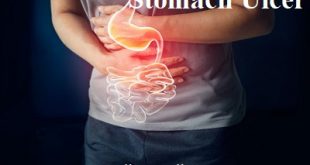
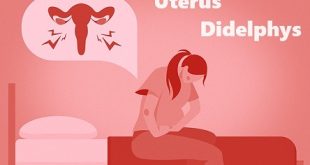
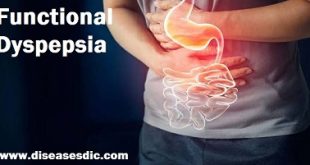
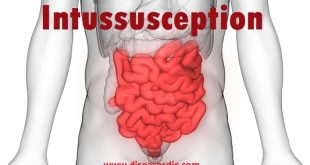
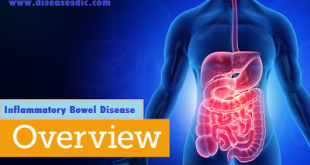
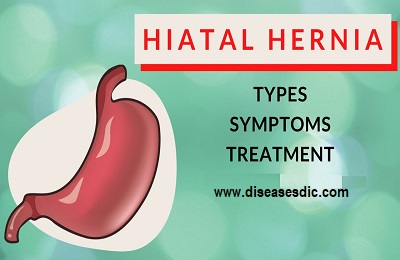
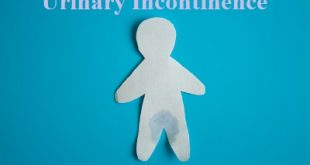

that is my real problem,Please I need help
Kindly consider a specialist for better treatment consideration.
what’s remedy can we used to cure stomach pain and chest pain always
Persistent stomach and chest pain require evaluation by a healthcare professional to determine the underlying cause. Remedies may include lifestyle changes, medications, or other interventions based on the diagnosis provided by a medical expert.